Ahhh… the deep question that inevitably leaves us all staring at the endless grocery store coffee shelves, finally Googling “whole bean vs ground coffee” before we make our choice—only to get home and realize we don’t have a grinder. Cripes.
Despite many coffee connoisseurs arguing for the ultimate superiority of whole bean, when it comes to choosing whole bean vs. ground coffee, which works best for you ultimately comes down to convenience, time, and personal preference.
This article will help guide you to the best choice for you. So grab your mug, take a chug, and let’s get personal shall we?
Whole Bean Vs Ground Coffee: Here’s How to Choose
How Do You Brew Your Coffee?
One factor to consider when picking your dream bean is the method you use for brewing your coffee. Different methods call for different grind sizes: French Press requires coarser beans, while espresso needs a finer grind. Having a grind too small or too large can lead to bitter or sour coffee, so it’s a good idea to make sure your coffee grind and brewing method are compatible.
Most ground coffees are a medium-fine grind size, which is suitable for automatic drip coffee or single-serve like pour-over or Aeropress. If you use a method that requires a very fine grind (like espresso or Moka pot) or alternate between a variety of methods, you might prefer the flexibility of grinding your own whole bean coffee.
- Automatic drip or single-serve (Mr. Coffee all day): Ground Coffee
- Espresso or a wide variety (depends on my mood): Whole Bean
How Much Time Do You Have?
If you’re short on time in the mornings, pre-ground coffee can save you a few precious minutes.
If you have the time, however, the “ritual” of grinding your own beans—enjoying the freshly released aroma and simply being involved in more of the harvest to brew process—whole bean coffee can be worth the few extra minutes spent grinding.
- Every second counts (I’m lucky if I leave the house with pants on): Ground Coffee
- Plenty of time (coffee IS my morning): Whole Bean
How Much Coffee Does Your Household Drink?
And finally, the most important question of all: How much coffee do you (or does your household) drink each day?
If you’re a caffeine fiend, or have multiple coffee drinkers in your home, pre-ground coffee offers convenience and the ability to effortlessly churn out pot after pot to keep you firing on all cylinders.
However, if you’re more of the one-and-done type, whole bean can be worth the extra effort.
- Just a few cups (enough to jump-start the day): Whole Bean
- A lot more than that (it’s my lifeblood and/or I have a large family): Ground Coffee
What About Flavor?
You may have heard that pre-ground coffee packs less of a flavor punch than whole bean.
While there is some truth to this (grinding coffee increases the rate at which it becomes oxidized, which can degrade the coffee’s natural oils) the reality is that there are many factors that affect the flavor profile of coffee far more than how long ago it was ground.
Also, the taste difference between ground and whole bean is usually very subtle and imperceptible by the average coffee drinker.
This is especially true if you add cream, honey, stevia, or any other delicious additions highlighted in our “9 Ways To Spice Up Your Coffee Routine” article.
But let’s say you like your coffee black and expect the best possible flavor out of your morning brew.
A few additional factors contribute to flavor far more than whether you, or someone else, grinded your beans—including storage method, water quality, water to coffee ratio, and—of course—the quality of your coffee beans. You can learn more about optimizing each of these variables in the article “How To Brew Coffee Like A Pro: 7 Tips For Crafting The Perfect Cup.”
The final variable affecting the flavor of your coffee—whether it’s pre-ground or whole bean—is the bag your coffee comes in and how it is stored once it’s opened. As we alluded to above, oxidation can have a profound effect on the flavor profile of your cup of coffee. So, from packaging to storage, minimizing oxygen exposure is the name of the game when it comes to freshness and flavor.
- Call me crazy, but I like my coffee to taste good (this one's a toss up): Ground Coffee or Whole Bean will do.
Yes—so long as you start with a high-quality coffee bean, minimize oxidation via optimal packaging and storage, and use the right amount of the best water you have access to—you can enjoy delicious tasting coffee with whole or pre-ground beans.
Pros & Cons of Whole Bean Vs Ground Coffee
When it comes to ground or whole bean coffee, there’s no “right” answer—it just comes down to what your preferences are.
Whole bean coffee offers a vibe that many die-hard coffee drinkers revere as a hallowed part of their morning routine.
From the sound of the beans falling from the bag into the grinder to the burst of pure aromatic bliss as the oils are released from the crackling beans, going ground is just not an option that’s on the table for some.
Practically speaking, buying whole bean coffee also allows you to customize the grind size for whichever brewing method you prefer.
But, grinding can be loud, cumbersome, takes time, is impractical when traveling, and can be complicated. Finding the perfect grind for your brewing method can take practice, and can depend on your grinder, the coffee’s moisture content, bean variety, and roast profile.
So, for some, the ease, practicality, and absence of the jarringly loud coffee grinder/alarm clock make pre-ground coffee's convenience and uniformly ground beans a no-brainer.
Ki Points on Ground Coffee Vs Whole Bean
Choosing between ground coffee or whole bean all comes down to what’s important to you. Convenience above all? Pre-ground is the way to go. Thrive on control and customization? Whole bean is your friend.
In summary...
Opt for whole bean if you:
- Have an extra few minutes to grind your coffee
- Own a coffee grinder, or don’t mind buying one
- Use a variety of brewing methods that require different grind sizes
Go for ground if you:
- Have busy mornings
- Don’t own a coffee grinder (and don’t want one)
- Use an automatic drip coffee brewer or other method compatible with medium-fine grind
NEW! Kion Ground Dark Roast Coffee for the Convenience-Loving Dark Roast Drinker
Kion Ground Dark Roast Coffee is the same bold, organic, specialty-grade, toxin-free coffee you know and love, now pre-ground for your ultimate convenience and packaged in nitrogen-flushed bags to keep it as fresh and flavorful as the day it was roasted.
Whether you’re looking for a better travel coffee, don’t own a grinder, or just want to keep your morning coffee routine simple, Kion Ground Coffee is where flavor and convenience meet in your morning mug.
Looking for more tips to elevate your daily grind? Check out these resources:
- How to Brew Coffee Like a Pro
- The Best Way to Brew Coffee: A Guide To 8 Popular Methods
- 9 Ways to Spice Up Your Coffee Routine
- Should You Switch to Organic Coffee?
- Is Coffee Bad For You? The Truth About The Health Benefits of Coffee
- Keeping Caffeine in the Friend Zone
- Does Coffee Break a Fast? The Ultimate Guide to Coffee and Fasting



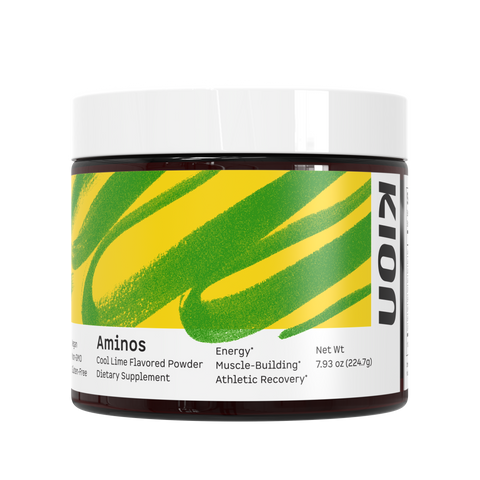
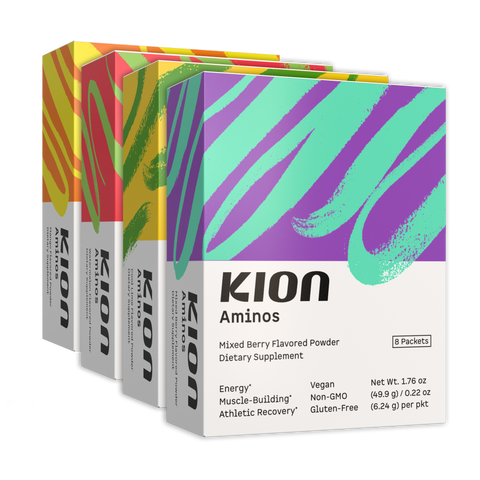
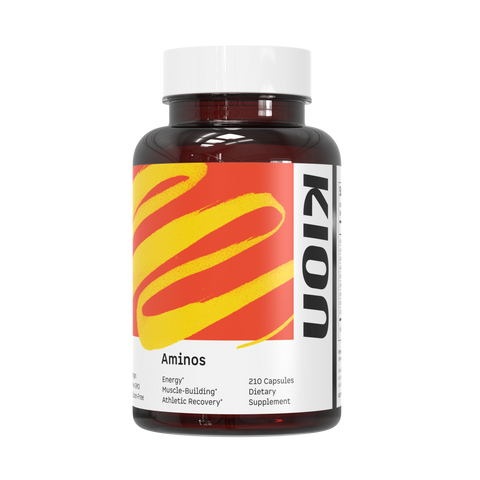
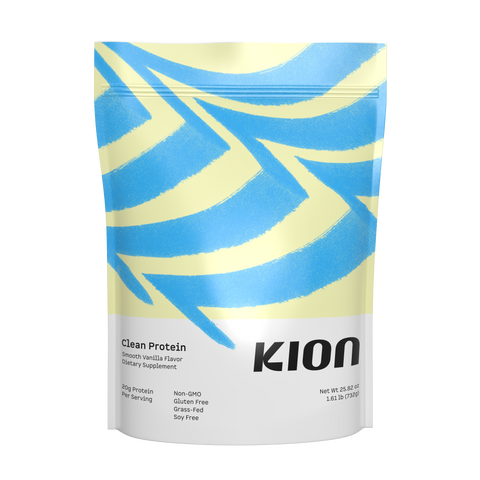
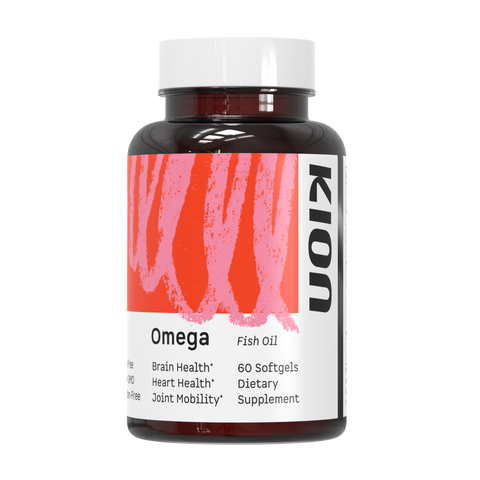
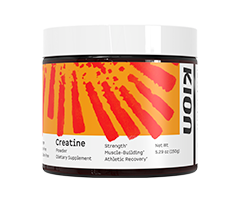
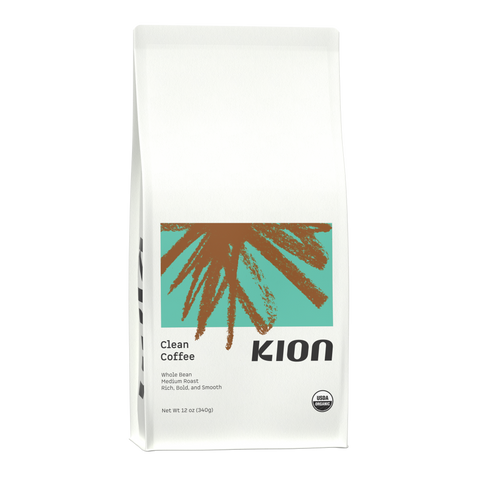
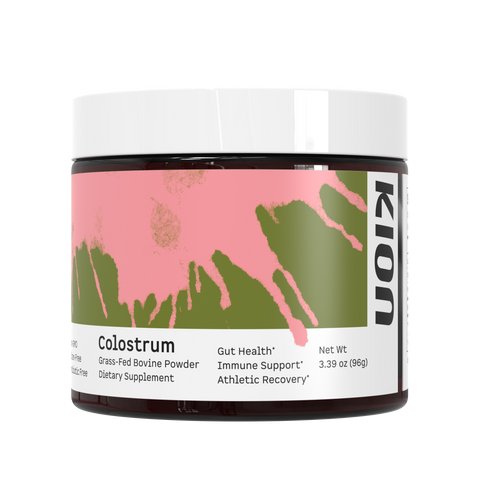
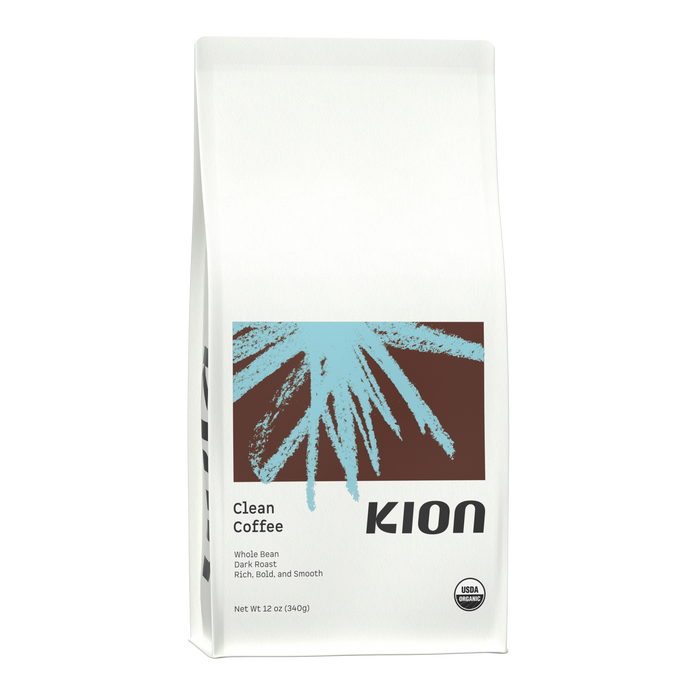
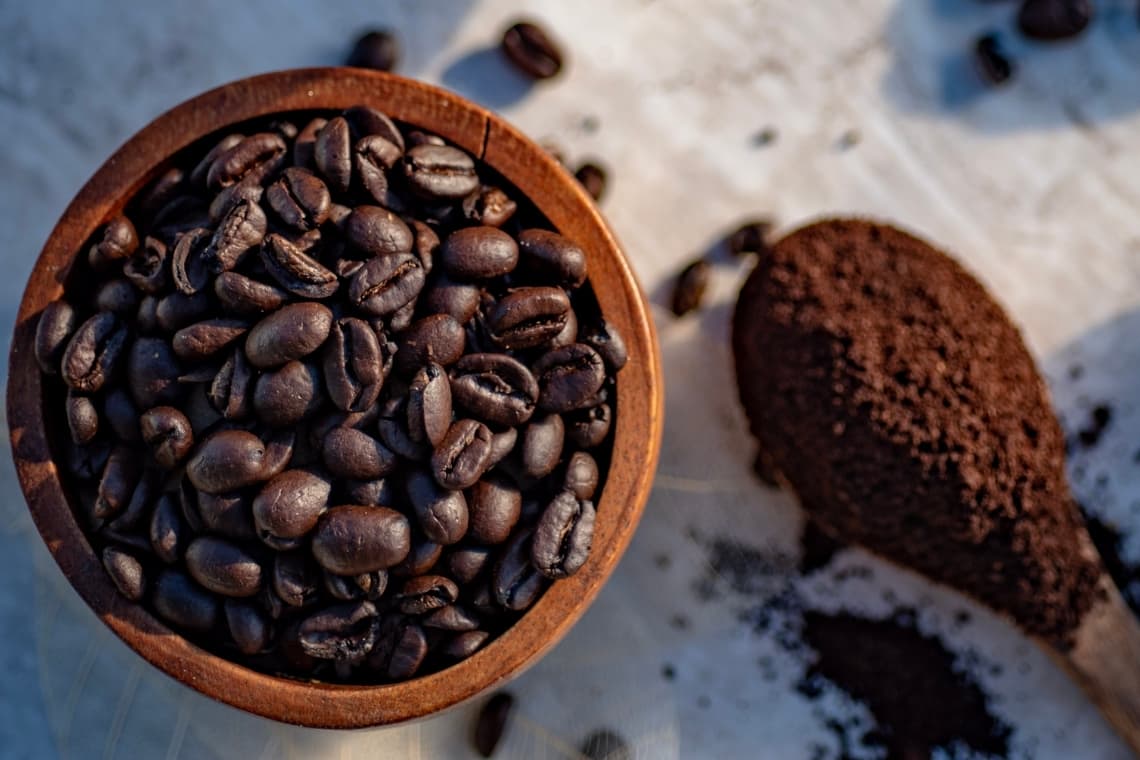





Comments
Kion’s coffee is delicious. No migraine if I skip a day. That says a lot.
EBaird on
to me ground coffee is better as it’s less work
Shelli Bradley on
My old lady and I usually share a cup of French-pressed coffee every AM. She enjoys discussion of light/dark roast and ground vs. whole bean, and her grinder screams every AM. My question is about grind size. Emptying the press into compost, I often find intact whole beans. She says the press calls for a coarser grind. But isn’t unground wasteful? Penny pinchers don’t grind whole beans, l get that. But what do you think of this practice?
———
Kion replied:
Technically speaking, one could actually brew a cup of coffee from whole beans. The act of grinding a whole bean, among other happenings, actually increases the surface area of beans that are exposed to water, thereby improving the efficiency of the brewing process. Typically, a french press is ideally used with a medium grind (as opposed to fine) in order to avoid that “sludgy” cup of coffee that can result from a finer grind. Our best recommendation would be to seek out a quality burr grinder (as opposed to a blade style) as they produce a much more consistent grind. A good burr grinder is not inexpensive, but is a worthwhile investment for years worth of consistent brews.
B Minard on
Something I did see mentioned in the brewing methods was cold brewed coffee. I have a grinder (cold brew use coarse ground) and the Kion whole beans are great for cold brewed. Cold brewed is less acidic than hot brewed. It does take some time (about 12-24 hours in the refrigerator), but if you make a large batch it will keep for days. My recommendation is to make the cold brewed stronger than you think you may like it as you can always dilute it with cold water if needed.
Anonymous on
Great article. I have been a whole bean guy for years now.
But in reading your article, you have opened my eyes to advantages to having some ground coffee on hand.
Lee Roe on